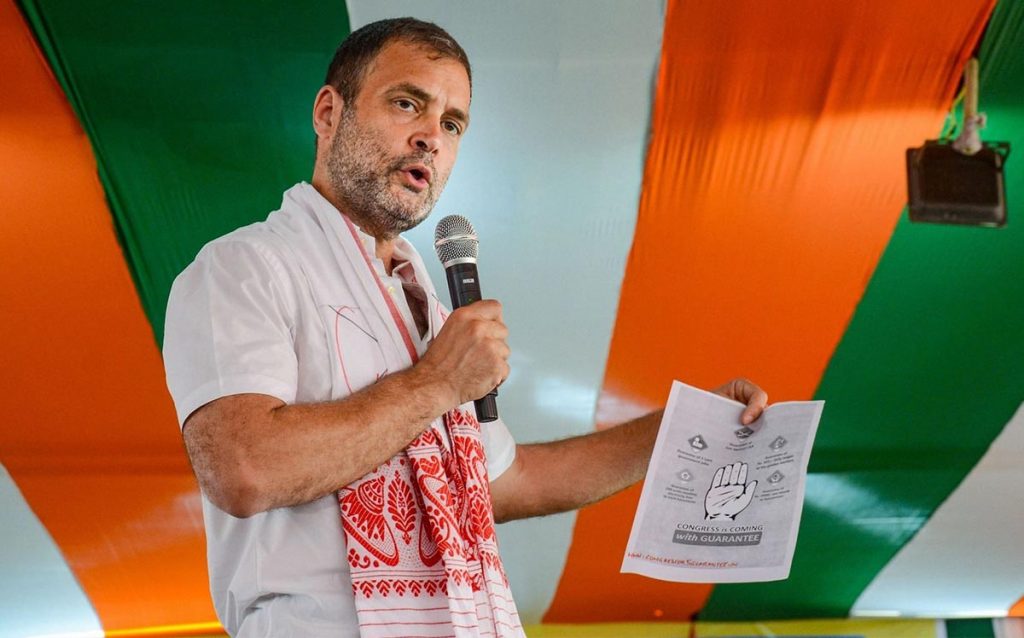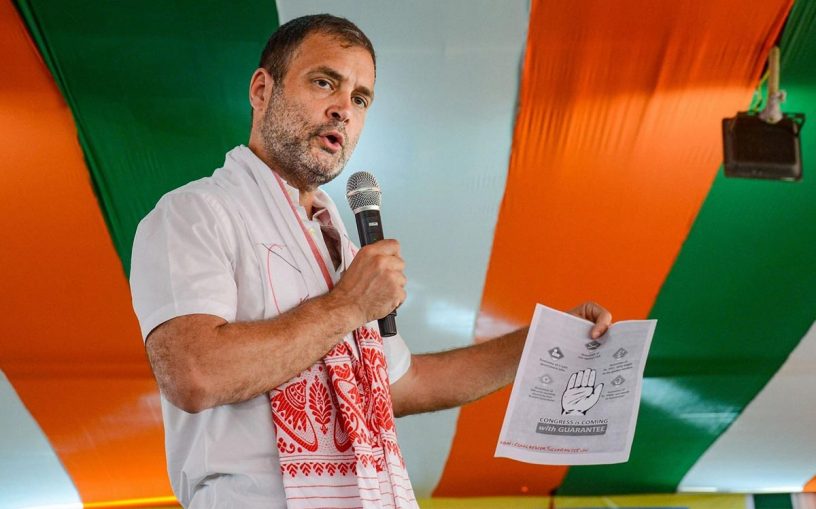
Since Rahul Gandhi stepped down over two years ago, the old guard has been unable to choose a successor from among themselves because there is no sellable charismatic leader among them and their inability to unite the party, says the author.
Authors:
Mohsin Raza Khan, Associate Professor & Assistant Dean, Jindal School of International Affairs, O. P. Jindal Global University, Sonipat, Haryana, India.
Summary:
The media are filled with earnest calls for the removal of Rahul Gandhi and/or the disbanding of the Congress party. Often these include celebrations anticipating its replacement by the TMC and AAP. The proponents of these views are not just opponents of liberalism or the Congress, but experts of various kinds and often supporters of a democratic India. Unfortunately in their eagerness they harm their own cause due to a misunderstanding of ideology in politics, and the role of the Congress in India’s democracy.
The political scientists Pradeep Chibber, Rahul Verma, Suhas Palshikar and others have shown a rightward and Hindu majoritarian shift in the preferences of the Indian voter, which is why even north Indian regional parties which are successful in state elections often lose out to the BJP nationally. Often when they do fight the BJP, like the AAP they fight on the BJP’s ideological turf.
This is a process long in the making, as is the organizational and ideological decline of the Congress, and both of these have very little to do with Rahul Gandhi. In fact most of it has happened under the watch of the Congress old guard, for whose honour and dignity copious tears have been shed by critics. The old guard oversaw the third factor contributing to the decline – the taint of severe corruption, which stuck on under the watch of these venerable elders.
What is worse is they have blocked and sabotaged all attempts at organisational change in the Congress, starting from the grassroots election in the Youth Congress organized by Rahul Gandhi over a decade ago to bring in capable young blood. Here they flooded the membership and voting rolls with their supporters and got their sons, daughters and cronies elected. This has extended to the Congress proper, as well as the apex decision-making bodies of the AICC and the CWC.
Despite this stranglehold they have had no effective answer to the rise of the BJP or Prime Minister Modi. They did little organizational work while enjoying the fruits of power. Unable to strengthen even the grassroots organization of their own constituencies or even visit them regularly, they are now in a position where they can’t win even a municipal seat.
Since Rahul Gandhi stepped down over two years ago the old guard has been unable to choose a successor from among themselves because the truth is that there is no sellable charismatic leader among them and their inability to unite the party.
There are of course some within the old guard who are still effective and popular, like Gehlot in Rajasthan or Baghel in Chattisgarh, but these are leaders who have risen from the grassroots and are still in touch with the masses and local politics.
This brings us back to the nature of politics – is it about ideology, interests, oratory, image, cash or social coalitions? The short answer is that it’s about all of them – just look at the strategy of the BJP. But ideology and interests are front and centre. Without ideology the BJP wouldn’t have the 20% plus core vote that has stood by them even in their defeats of 2004 and 2009.
Published in: The Citizen
To read the full article, please click here


